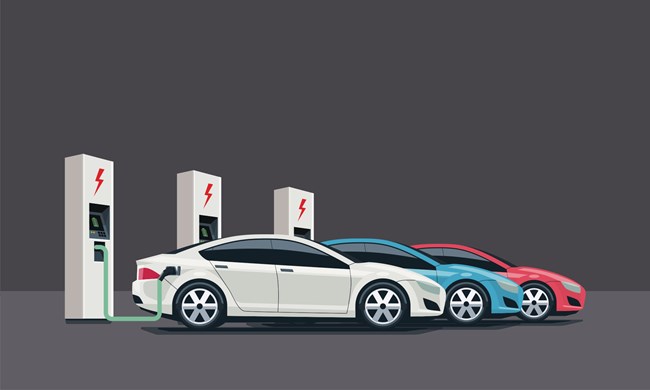We use cookies to ensure that we give you the best experience on our website. If you continue without changing your settings, we will assume that you are happy to receive all cookies on the Business Car website. However, if you would like to, you can change your cookies at any time

The start point for the best source of fleet information |
Fleet EV outlook improving despite narrowing running cost advantage, BVRLA says
Date: 22 September 2022 | Author: Sean Keywood

The fleet industry's journey towards zero emissions is in a better place than it was a year ago, but some concerns remain, including a reducing total cost of ownership (TCO) advantage for EVs over ICE vehicles.
That's according to the BVRLA, which has published its latest Road to Zero Report Card for 2022.
The report offers an assessment of different aspects of electrification, and a rating, with the best being Cruising, then running down through Accelerating and Brakes On to the worst rating, Parked.
Overall, progress on the road to zero is rated as Accelerating, an improvement on the Brakes On given last year.
In addition, for the three key areas of demand, infrastructure, and supply, the report gives separate ratings for car, LCV, and HGV fleets, and in these it is cars which are performing best, with demand rated as Cruising, and infrastructure and supply as Accelerating.
On the subject of demand, the report states that financial incentives, ESG commitments, and innovative mobility offerings have propelled strong growth - although it warns momentum here will only be maintained through certainty on future company car BIK tax rates.
It is here also that the report warns of the worsening TCO picture for electric cars versus petrol and diesel models, due to both the upfront cost of EVs and increasing electricity prices. These mean that EVs have gone from being 9% cheaper than petrols and 8% cheaper than diesels on TCO, to just 3% now - and this comparison is set to get closer still with electricity prices rising further and petrol and diesel costs coming down.
The report's key recommendations regarding demand are for at least two more years of EV BIK foresight - and with rates kept as low as possible - as well as reform of the Advisory Electricity Rate, and the introduction of 100% writing down allowances for green assets, including leased and rented vehicles.
Regarding infrastructure, the report states that a continued expansion of publicly available infrastructure is improving the situation for current users, but also that as supply bottlenecks recede, infrastructure roll-out will need to speed up.
There are particular concerns about the fleet suitability of infrastructure, with reliability not though to be good enough.
Speaking during a webinar held to accompany the publication of the report card, BVRLA senior policy adviser Catherine Bowen said that although concerns about access to chargers for commercial vehicles were a major aspect of this, other factors were at play too.
She said: "Persistently, we have heard things about grid connection costs and times. There are still prohibitive costs with the whole grid connection process, and the current norm of waits of around 18 months for network connections are really unacceptable for a number of fleets.
"We heard quite a lot too about the lack of an ability to pre-book charging, and that this could really help on reducing downtime, and also there was quite a lot of scepticism around e-fuel cards and coverage across the network."
The report recommends local authority EV infrastructure strategies that acknowledge fleet needs, and the equalisation of VAT rates between home and public charging.
As for supply, the report notes that zero-emission car model choice has surged this year, although ongoing global market supply chain pressures are holding back demand, with the widely-reported problems meaning lead times of up to 18 months for some models.
Commenting with the release of the report, BVRLA chief executive Gerry Keaney said: "Electric vehicles are in high demand. Fleets remain committed to bringing cleaner, greener vehicles to UK roads and are delivering ambitious strategies to make it happen.
"The government cannot rest on its laurels by taking that demand for granted. Incentives are making EVs cost effective, with low BIK rates on electric company cars accelerating exceptional uptake.
"Those incentives must remain, otherwise the fragile market will stall in the face of severe economic headwinds."
Regarding investment in charging infrastructure, Keaney said that this was not simply a numbers game.
He said: "More consideration needs to be given to the needs of all road users. Fleet operators are ready to lead the charge but are being left with one hand tied behind their back.
"The government is beginning to listen to these concerns and we will continue to push the issue until authorities across the country are building infrastructure strategies that fully meet fleet needs."











